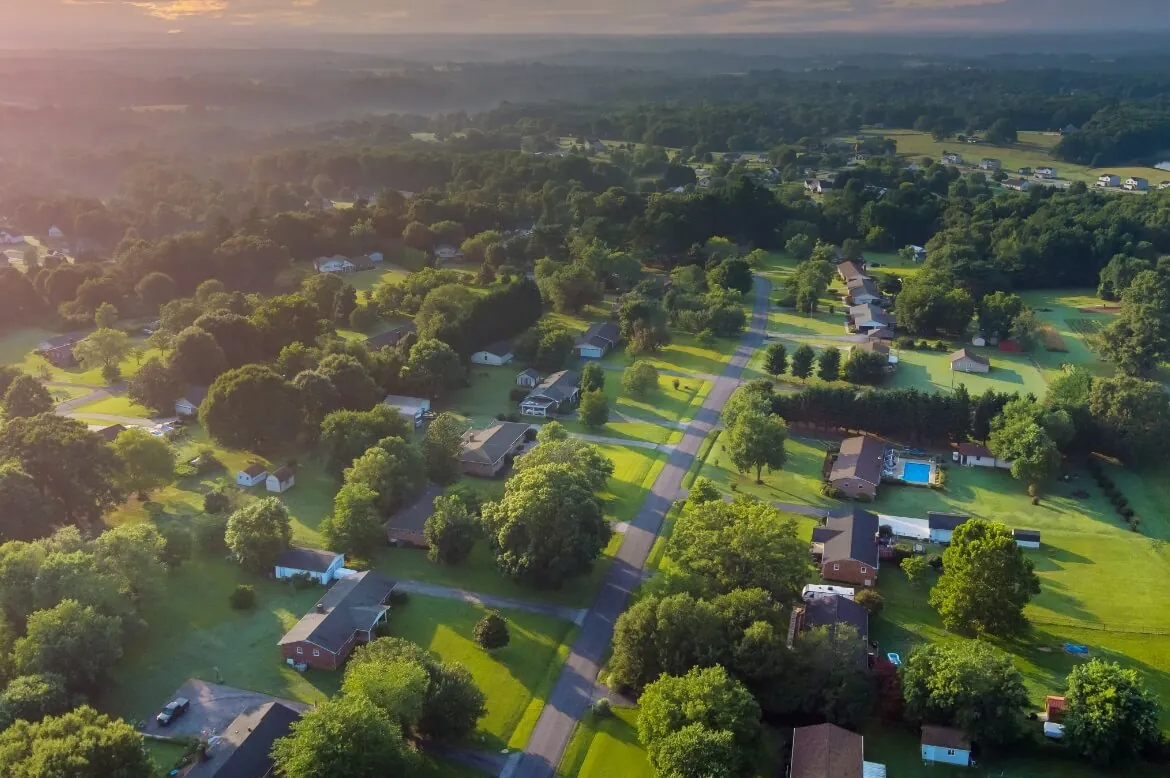Reading Time: 5 minutes
When most people think about eminent domain, they picture a homeowner being forced to sell their house to make way for a new road or public utility. But for business and commercial property owners, the stakes are often even higher and more complex. In Florida, commercial condemnation cases bring a different set of challenges. Beyond land value, business owners must consider how a taking affects their income, operations, goodwill, and long-term viability. While Florida law provides strong protections for owners, navigating this landscape requires a deeper understanding of the unique legal and valuation issues involved.
What Makes Commercial Takings Different?
When the government takes commercial property, the impact extends far beyond the square footage being condemned. Whether you own a shopping center, office building, industrial site, or small storefront, the taking can disrupt revenue, reduce access, displace tenants, and damage long-term marketability. Here’s what sets commercial cases apart:
- There may be multiple stakeholders (owners, tenants, subtenants, franchisors) with competing rights
- The property may be income-producing, requiring specialized valuation methods
- A partial taking may result in severance damages that ripple through other revenue streams
- The business itself may suffer direct harm—opening the door to a business damages claim under Florida law
These are not issues that arise in most residential takings, and they require a tailored strategy from the outset.
Business Damages Under Florida Law
Florida is one of a few states that provides statutory compensation for business damages in certain condemnation cases. If your business qualifies, this can dramatically increase the overall recovery. To be eligible under § 73.071(3)(b), you must show:
- The business is located on the condemned property
- It has operated for at least five years
- It is a lawful use, not incidental or speculative
- The taking results in a permanent loss (temporary losses may not be compensable)
Qualifying businesses may recover for reduced income, relocation costs, and disruption to established operations. For many business owners, this is where the majority of their claim lies—not in the land, but in the damage to what that land made possible.
Valuation Challenges for Commercial Properties
Appraising commercial property in an eminent domain context is highly specialized. In addition to the traditional comparable sales method, appraisers may use:
- Income capitalization, for properties like shopping centers, offices, or warehouses
- Cost approach, for custom or special-use buildings
- Residual land value, when the property is part of a larger redevelopment plan
Beyond the land’s value, appraisers must analyze how the taking impacts access, visibility, layout, and long-term marketability. For example:
- A retail plaza that loses its corner visibility to road expansion may suffer a drop in lease rates
- A distribution center that loses internal truck access may see a decline in tenant interest
- A property split by a partial taking may become nonconforming under zoning regulations
These impacts may not appear on the government’s initial appraisal, but they matter in court.
Severance Damages and Remainder Valuation
When only part of a commercial property is taken, the remainder may suffer measurable loss in value. This is where severance damages come into play. Florida law, through § 73.071(3)(b), allows compensation for loss of functionality, parking, signage visibility, or compliance with zoning and building codes. If the remainder is no longer usable in its current form, or if its value is significantly diminished, that loss must be addressed. Calculating severance damages in commercial settings often requires a team approach: appraisers, engineers, traffic consultants, and land planners all play a role in quantifying the impact.
Tenant and Landlord Considerations
Commercial condemnation frequently involves leased properties—and leases rarely anticipate how to handle eminent domain in detail. Landlords and tenants may have competing claims to compensation, particularly where improvements, relocation costs, or business damages are involved. Common scenarios include:
- Tenants who’ve built out custom spaces with their own capital
- Landlords who lose rent or face lease terminations triggered by the taking
- Ambiguities in lease clauses regarding condemnation awards
In Florida, both landlords and tenants may be entitled to recover damages, but their rights depend heavily on lease terms and legal strategy. Coordination between both parties is essential.
Quick Take Complications for Businesses
When the condemning authority uses Florida’s quick take procedure under Chapter 74, it can take possession of the property shortly after filing, before compensation is finalized. For businesses, this creates a real problem: operations may be disrupted long before relocation or compensation is resolved. This makes early planning critical. Business owners should:
- Evaluate relocation options immediately
- Document income history, customer volume, and operational costs
- Preserve records of moving and reestablishment expenses
- Secure expert support to quantify the losses accurately
Quick take cases move fast—and the burden is on the business owner to respond in time.
Legal Fees and Expert Reimbursement
Because commercial cases involve multiple experts, appraisers, engineers, business valuators—the cost of defending your claim can be substantial. Fortunately, Florida law allows successful owners to recover reasonable fees and costs under § 73.091, provided the final award exceeds the government’s initial offer. This levels the playing field and allows businesses to hire the team they need without shouldering the entire burden themselves.
Conclusion
Commercial property condemnation is not a one-size-fits-all process. Business owners face unique financial risks that go well beyond the land’s surface value. From business damages to severance loss to lease complexities, the legal and valuation issues are layered and strategic. Florida law provides the tools—but it’s up to owners to use them early, assertively, and with expert support. If you’re facing a taking of commercial property, don’t rely on a residential playbook. Build a strategy tailored to your business, and fight for the full compensation Florida law guarantees.
Disclaimer: This article is for informational purposes only and does not constitute legal advice. Reading this article does not create an attorney-client relationship. Past results do not guarantee future outcomes.
